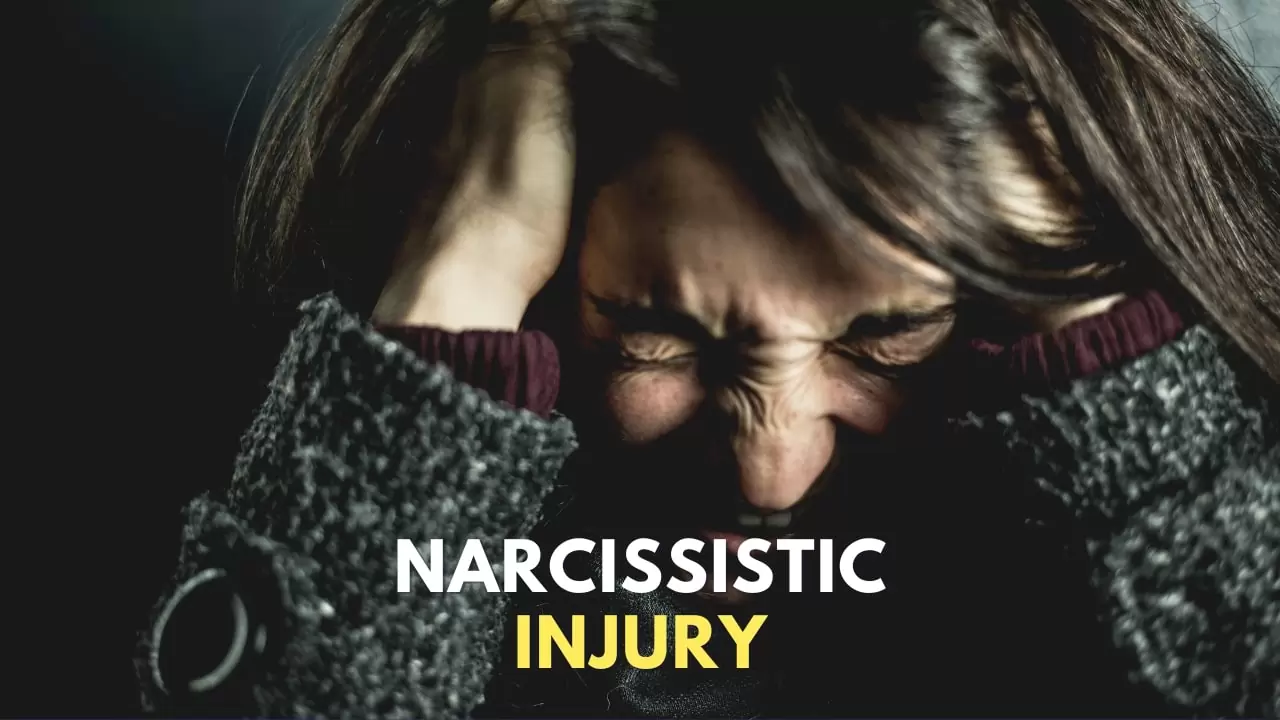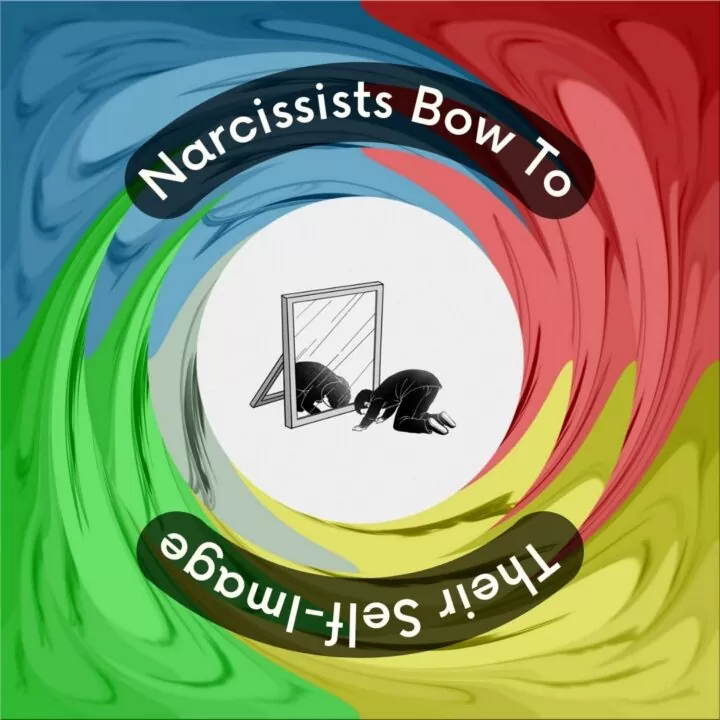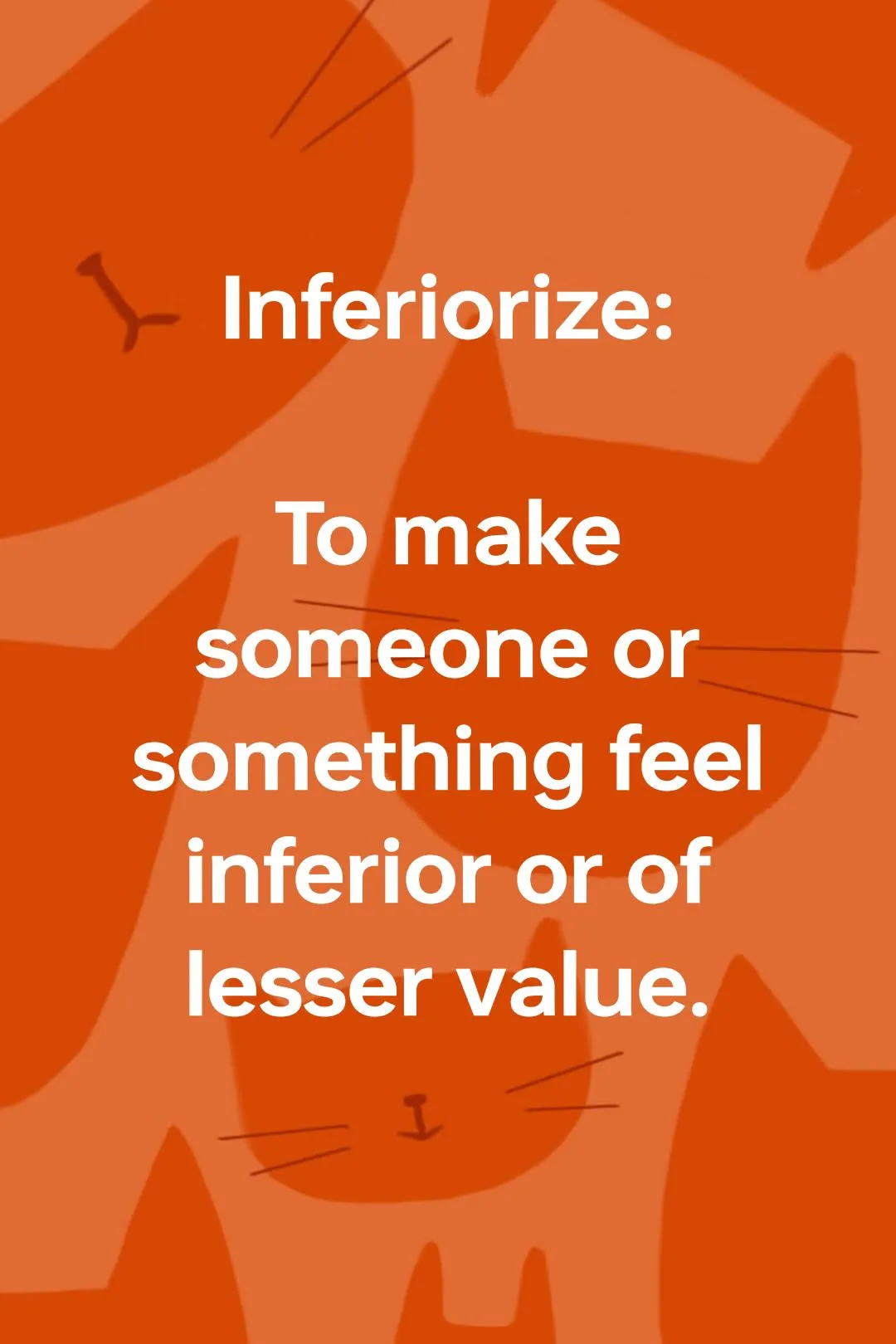Today's Saturday • 9 mins read
Narcissists in relationships often act as if they have full authority over you. They believe they can micromanage your life and stay untouchable.
So, can you actually hurt or humiliate a narcissist?
Yes. And when you do, they experience what’s called a narcissistic injury.
It happens when you puncture their inflated ego and threaten their sense of superiority.
But what does that look like in real life? A wounded narcissist reacts with many negative emotions.
Why is someone who seems so confident on the outside so thin-skinned on the inside?
Let’s explore the psychology behind narcissistic injury.
What Is Narcissistic Injury?
Narcissistic injury is the emotional pain caused when a narcissist’s grandiose self-image is threatened, criticized, or exposed as flawed.
The term was first described in the 1970s by psychoanalyst Heinz Kohut. Psychologists also use terms like “ego deflation,” “wounded self,” and “narcissistic wound” to describe this experience.
“Narcissistic injury describes damage to the individuals’ experience of their ‘real self’.” — Andrea Halewood & Rachel Tribe, 2003
Narcissists feel unsafe being their true selves around their caregivers. So they reject their “real self” early on and replace it with a highly developed “false self.”
A narcissistic injury happens when that false self is damaged, exposing the insecure real self underneath. This often leads them to act in defensive, aggressive, or avoidant ways.

5 Triggers That Cause Narcissistic Injury
These are the five most common triggers of narcissistic injury:
1. Criticism or Feedback
Even slight criticism or positive feedback can feel like a personal affront. They may interpret simple advice like “You could improve this” as “You’re a failure.”
It’s because narcissists see feedback, criticism, or pointing out flaws as threats meant to rip their carefully crafted grand self-image.
2. Exposure or Unmasking
They feel extremely vulnerable when someone exposes their real self. It wounds them deeply that people now realize how average, insecure, or unimpressive they are beneath the mask.
This fear of exposure is why they turn hostile toward anyone who knows about their past, like career lies, relationship falsehoods, fake achievements, or financial inconsistencies.
3. Rejection
They feel valuable only as long as you admire them and do things for them without question. This is their narcissistic supply.
The moment you say “no,” ignore them, or set boundaries, they panic. They see it as a rejection of their entire identity, not just a refusal of one demand.
4. Loss of Control
Narcissists thrive on controlling others. Losing control can throw them into a tailspin of rage or despair.
This can happen when they are corrected in public, denied access to a privilege, or compared to someone more successful in a shared space.
5. Being Out of The Spotlight
Their need for attention is one of their top three basic traits. So when someone else gets the spotlight in their presence, they see it as a loss of status or power.
Whether it’s not being the center of attention at a dinner or losing an argument at work, narcissists can’t tolerate loss of ego dominance.

Why Narcissists Are So Vulnerable To Injury
Traits that make narcissists more prone to narcissistic injury:
- Obsession with perfection, success, or image
- Need for admiration in personal or public settings
- Low self-awareness of their behavior and emotional state
- Deep feelings of shame or inadequacy that they can’t admit
Actually, most narcissists face shame and disgrace at some point in their lives. Even if they hide it well, they carry that injury like a festering wound, looking for revenge.
A single narcissistic injury can haunt them for life. They can’t let go of the humiliation. They can spend the rest of their lives hypervigilant to another injury.
“A narcissist’s grandiose exterior hides a deep sense of inadequacy caused by disturbed self-experience.”
— Oxford Textbook of Psychiatry (1983)
Their confidence relies entirely on how others see them. When they’re praised, they’re charming and magnetic. When they’re corrected or challenged, that charm can flip into cruelty in seconds.
Narcissists develop a ‘false self’ to stay in control. Asking them to “just be yourself” doesn’t work on them, as it’s a call to bring out their wounded true self.
Childhood Roots of Narcissistic Injury
Narcissists often experience overpowering parenting. Many of them grow up in environments where love and attention are conditional. Their worth is tied to achievement, image, or emotional obedience.
This creates two internal beliefs:
- “I’m only lovable if I perform.”
- “The real me isn’t good enough.”
Some patterns behind early narcissistic wounds:
- Emotional neglect or constant comparison to others
- Parents who criticize more than they care
- Idealization or pressure to be exceptional
- Inconsistent expressions of affection
All this trains the child to suppress their authentic self and focus on gaining approval. Later, when someone challenges them, they feel not just offended, but exposed raw.
Miller (1981) speculated that narcissistically disturbed mothers may raise narcissistically disturbed children.

Signs of Narcissistic Injury
Narcissists don’t admit emotional pain. They react to it. And their reactions are often designed to deflect blame, regain control, or punish you for “hurting” them.
These are common signs a narcissist is experiencing narcissistic injury:
- Becoming defensive over the smallest remarks
- Sudden emotional outbursts or unpredictable mood swings
- Extreme jealousy or possessiveness (especially in relationships)
- Blaming you for their mistakes or denying obvious wrongdoing
- Speaking with cutting sarcasm or belittling your accomplishments
- Retreating into silence, emotional withdrawal, or one-word replies
- Acting sweet or composed with others, but cold or hostile toward you
- Making your feedback feel like a personal slight, even when calmly worded
An injured narcissist won’t say, “That hurt me.” But they will retaliate to make sure you feel guilty, confused, or afraid. So that you retreat, submit, or take the blame.
It’s emotional armor: tough outside, injured inside.
7 Ways Narcissists React To Ego Wounds
These are the seven most common ways narcissists react when their ego is wounded:
1. Denial
They flatly deny any responsibility for their wrongdoing.
Denial protects them from humiliation and shame. While accepting their mistakes would mean tarnishing their “perfect and superior” image.
Often, they even project blame, accusing you of what they’re guilty of. “You did it, not me! Don’t blame me.”
2. Overt Aggression
Narcissists always maintain a certain amount of anger at all times (“simmering”), so others feel threatened and intimidated.
When the narcissist is injured, they may explode in their classic “narcissistic rage”: yelling, insults, breaking things, or launching a blame campaign.
3. Passive Aggression
Passive hostile behavior is when they indirectly express their complaints and hurt through actions. They can:
- Make false promises, walk out of conversations, or repeat behaviors just to irritate you.
- Act uninterested or disengaged, like scrolling on their phone while you’re speaking.
- Make excuses to avoid plans, then pretend you never wanted them to go anyway.
- Give you a gift, then make it known that you didn’t deserve it.
It’s how they avoid talking about the issues openly, making you confused and frustrated.
4. Devaluation
After an ego wound, they may suddenly make you fall from grace. They tell you that you’re worthless, ungrateful, and the one who’s the real problem. They can use:
- Dark sarcasm to put you down or make you feel bad about yourself.
- Cutting remarks, insulting your intelligence, or belittling your accomplishments.
They inferiorize you to feel superior themselves, like all narcissists.

5. Opposition
One of their favorite tactics is “because-you-said-so-I-won’t.”
They’ll suddenly disagree with anything that pokes at their ego. They may suddenly take the opposite stand on issues both of you have supported all their life, just to oppose you.
6. Victim Playing
They present themselves as victims and martyrs. They exaggerate your actions, gather supporters, or run a smear campaign. This tactic protects their ego and public image.
This is called Reactive Abuse: When The Real Victim Looks Like The Abuser.
7. Silent Treatment
After a narcissistic injury, they can go silent. They punish you by giving one-word replies, acting cold, and withholding love.
You’re forced to “walk on eggshells,” wondering what fault of yours could trigger even deeper emotional withdrawal.
Walking on eggshells = being highly careful not to disturb or upset the other person. Seen in relationships with a power imbalance. The weaker person is constantly on alert, fearing they might do something to enrage the more powerful person.
Those eggshells you walk on
— Stephanie Bennett-Henry
to keep the peace
only get louder,
the more you avoid
why you have to
walk on them in the first place.
Sweep them up,
pour them in the middle of the room,
and refuse to ever bend
to someone else’s breaking ever again.
Even your own.
You’re bigger than the trauma
that you learned to walk around,
for fear you may
wake a monster you know well.
Walk straight through it, babe.
It is the only way.
FAQs
1. What is the strongest form of non-physical pain for a narcissist?
Shame is the most severe non-physical pain for any narcissist. Extreme shame for a narcissist is when they are exposed in front of the same people they once impressed, controlled, or belittled. It hurts them to the core that their painstakingly constructed grandiose image has been torn down.
2. How long does narcissistic injury last?
A severe narcissistic injury, like public humiliation, can last a lifetime. For mild narcissistic injuries, they may distract themselves and forget the injurious incident. A very few of them might learn to forgive others.
3. Can narcissists heal?
Some do, with deep therapy, self-awareness, and willingness to let go of the false self. But most don’t change unless they feel an ego threat even greater than the pain of confronting themselves.
Research & Further Reading:
- Revenge: Narcissistic Injury, Rage, And Retaliation
- Somatization as a Defence from Narcissistic Injury
- Accepting Loss Said to Be Key to Overcoming Narcissistic Injury
- The Image of the Mother’s Eye: Autism and Early Narcissistic Injury
- What is the prevalence of narcissistic injury among trainee counseling psychologists?
Final Words
“Your worst bruises may come from people who didn’t touch you at all.”
As kids, we all seek validation from our parents, and most of us grow out of it. Narcissists don’t. They build an ego-inflated mask to hide the insecurity underneath.
What you must know is this: their shame is not your burden to carry.
If your narcissist is giving you a hard time after a narcissistic injury, don’t battle it out alone. Reach out for support from your friends and family, or a mental health professional.
• • •
√ Also Read: What Happens To A Narcissist In The End? (Better or Worse)
√ Please spread the word if you found this helpful.
» You deserve happiness! Choosing therapy could be your best decision.
...
• Disclosure: Buying via our links earns us a small commission.
